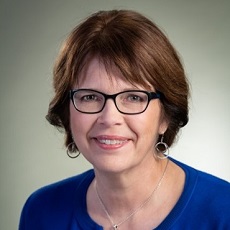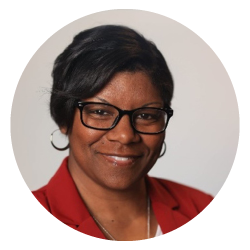
Four-part virtual learning series: March 26, April 23, May 28, and June 25 from 2-3:15 p.m.
Pricing:
Social Current Impact Partners can contact us for the free registration code. Learn more about Impact Partnerships online.
Staff at nonprofit organizations are facing change, stress, and conflict on multiple levels. Political polarization, isolation, and vicarious trauma are contributing to staff feeling drained and disengaged.
This four-part webinar series will equip leaders and supervisors with foundational knowledge and skills to help their teams manage uncertainty and interpersonal conflict so they can create a healthy and resilient organizational culture. To empower their staff, participants will learn about core strategies and tactics that are based in brain science research and trauma-informed approaches.
Presenters will address topics including increasing accountability, managing conflict, having crucial conversations, nurturing relationships, embracing equity, and achieving excellence.
March 26, 2025, 2-3:15 p.m. ET
To be well at work, especially in stressful and uncertain environments, it is important to understand basic brain concepts and embrace practices that enhance its functioning. Stress, distress, and trauma can trigger a “fight or flight” response, which makes it difficult to think and problem solve. However, brain science offers tools for managing this response.
The first session in this series focuses on the importance of embracing brain science awareness at work. We explore the neurobiology of stress, distress and trauma; the arousal continuum; and daily regulation activities to practice at work.
April 23, 2025, 2-3:15 p.m. ET
Direct service staff face pressure from many different people and are often afraid of making a mistake that might harm those they serve, negatively impact others’ perception of them, or disappoint their supervisors or colleagues.
Prioritizing psychological safety is essential to reduce this worry and allow staff to speak and act freely. It involves creating an environment where staff feel safe to take risks and speak candidly without the fear of retribution. When we foster psychological safety, It leads to authentic conversations, trust, and innovation.
The second session in this series explores how to foster psychological safety in the workplace to support courage and vulnerability. It discusses strategies for leaders to respond to staff challenges by modeling authenticity, accountability, and compassion, all which promote safe risk taking and trust.
May 28, 2025, 2-3:15 p.m. ET
You’ve heard the adage, “Culture eats strategy for breakfast.” It’s true. If our organizational culture is unhealthy, we will struggle to get our work done. So, we must intentionally build a positive staff culture that reflects our organization’s stated values and beliefs and aligns with our strategy.
The third session in this series explores the ingredients of a positive staff culture and the steps needed to achieve it. Learn strategies for bringing your organizational values into daily interactions, set clear and realistic boundaries and expectations and align culture and strategy to build resilience and success.
June 25, 2025, 2-3:15 p.m. ET
Now, more than ever, employees are looking for a sense of community at work. Our brains are hardwired for connection, and we crave belonging. When we build healthy connections with people at work, we are more equipped to tolerate differing perspectives, actively listen, demonstrate empathy, and have difficult conversations. In essence, a strong work community can hold an organization together, especially during challenging and uncertain times.
The fourth session in this series explores the components of healthy connections in the workplace and strategies for intentionally integrating connection and community across the range of employee experiences.
Individuals who are champions for strengthening the workforce culture, regardless of their title, will also benefit. This guidance is relevant for all workforces that serve children, adults, and families, including at the community, systems, government, and policy levels.

Senior Director, Change in Mind Institute
Social Current

Senior Director, Leadership Development/Organizational Excellence
Social Current